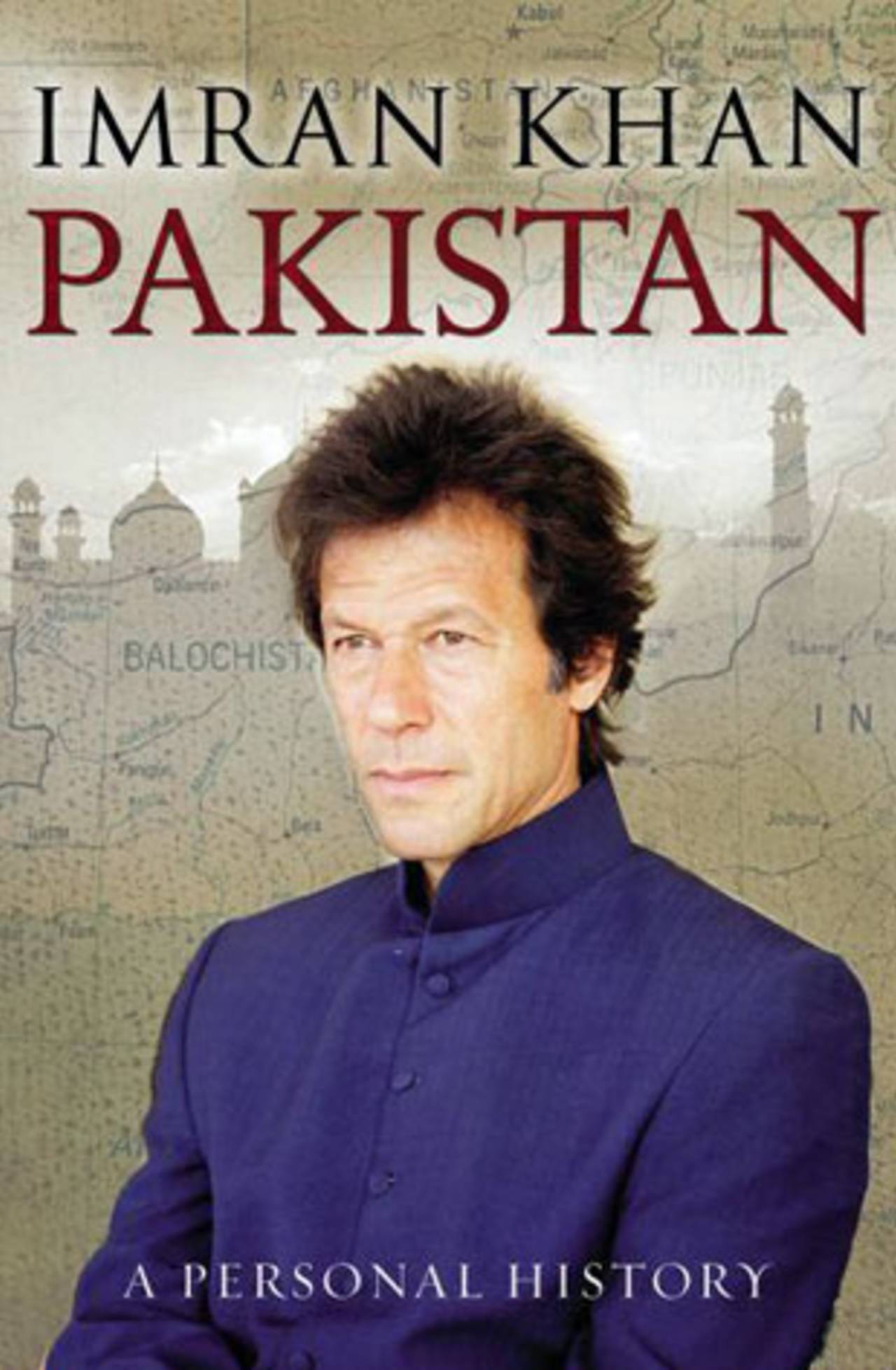How a cricket hero went political
What influence did the game have on where Imran Khan is today? A new book attempts to tell all
Sharda Ugra
Jan 28, 2012, 3:09 AM

Bantam Press
Finally, it is revealed. Imran Khan still "cringes" when he thinks about his victory speech after the 1992 World Cup final. He's even willing to accept that it was "terrible". But it doesn't matter anymore. As it is, Imran has reached the point where he says he doesn't care what anyone thinks about him.
Twenty years after he retired from international cricket, Imran has produced a third personalised account of his life. Pakistan: A Personal History is an addition to a slightly creaking shelf. There are two travel books, a book on cricket skills, and three biographies already in circulation.
Pakistan could well be a thinly disguised election manifesto aimed at the outside world as Imran moves to centre stage after 15 years on his country's political fringes. The last four chapters of the book are indeed more or less all about politics. Besides, unexpected characters - Socrates, Taimurlane, Rumi, Cat Stevens - keep appearing through the rest of it. The distressed fan might ask: where's the cricket?
It's there, it's there. In an undercurrent that runs for more than half the book, its ripple effects rise to the surface years later. These days Imran would rather not talk about cricket. His discussions are more Musharraf than Misbah, America over Ajmal. Cricket, though, is where much began.
As a member of the West Pakistan Under-19 team, Imran was on the last flight out of Dhaka in 1971 before the Pakistani army moved into East Pakistan, now Bangladesh. A conversation two years later with Ashraf-ul-Haque, who had played on the other side, told him of life and deaths in the war that followed the series. He writes, "I vowed I would never again accept our government's propaganda at face value or ever back a military operation against our own people." It has become a fundamental pillar of his politics more than three decades later. He has even been called Taliban Khan because of it.
Behind didactic politician, born-again spiritualist and committed philanthropist lurks the bloody-minded competitor. Imran's political rivals know he still doesn't back off, give up or go away. He writes about Pakistani politics with rage and Islam with humility and gratitude. When it comes to cricket, he remains the ambitious, imperious captain of Pakistan.
Leading the team, he says, gave him, "the ability to take pressure, to hold my nerve in a crisis, and nowhere could I have had such training as on the cricket field. It was to prove immensely valuable to me later in my life." At a time of crisis, he says, "the entire team will look to the captain, but they do not so much pay attention to what he says as to whether he believes in what he is saying".
These days Imran would rather not talk about cricket. His discussions are more Musharraf than Misbah, America over Ajmal. Cricket, though, is where much began
During Pakistan's jaw-dropping 1992 World Cup (detailed superbly in a chapter called "Our Failed Democracy") Imran says: "My not being able to play [due to a ruptured cartilage] would have a devastating impact on the morale of my young team. What's more, I had staked the hospital on winning." The injury was kept secret, he took cortisone shots to the shoulder, and only six months later could lift a glass without pain in his right hand.
The funniest story in a largely serious book involves both cricket and politics. In 1987, Nawaz Sharif, then the chief minister of Punjab, appoints himself captain of the Pakistan team for a warm-up match against West Indies. He walks out to open as well against, "one of the greatest fast bowling attacks in cricket history", wearing "batting pads, a floppy hat - and a smile… I quickly enquired if there was an ambulance ready".
One of the reasons for Imran's coming out of retirement - apart from the fact that the military dictator Gen Zia had asked him to - was "an unfulfilled longing to have a last bash at the West Indies". He writes: "I was the only captain in the 1980s who played three series against the far superior West Indies and who did not lose. Every other team was crushed." All true. No matter where they end up, cricketers never forget their shiniest statistics.
Pakistan begins not with Imran holding aloft the World Cup but instead being pushed around by the angry student wing of a religious party. A few pages later he scales a garden wall to escape arrest by the police. Him? The World Cup winner? Captain Fantastic, banana inswinger, swinger lifestyle, "Big Boys Play At Night" t-shirt. Police? Jail? What happened to him? Where did that other guy go?
His answer is simple. Faith, he says has "liberated me from my fears: fear of failure, fear of death, fear of losing my livelihood, fear of being humiliated by others… I cannot even imagine life without a passion and a purpose; once I had cricket, now I have my political struggle."
Imran Khan's politics can be argued over, he can be voted for or against. Pakistan, though, remains engaging, because it is a revealing portrait of a transformation. Of how the playboy became a philanthropist, worldly superstar turned spiritual. Of how an adored cricketing hero became a public figure ready even to be ridiculed. He doesn't care what you think about him anyway - he is in pursuit of his purpose.
Pakistan: A Personal History
Imran Khan
Bantam Press, 2011

Imran Khan
Bantam Press, 2011
Sharda Ugra is senior editor at ESPNcricinfo